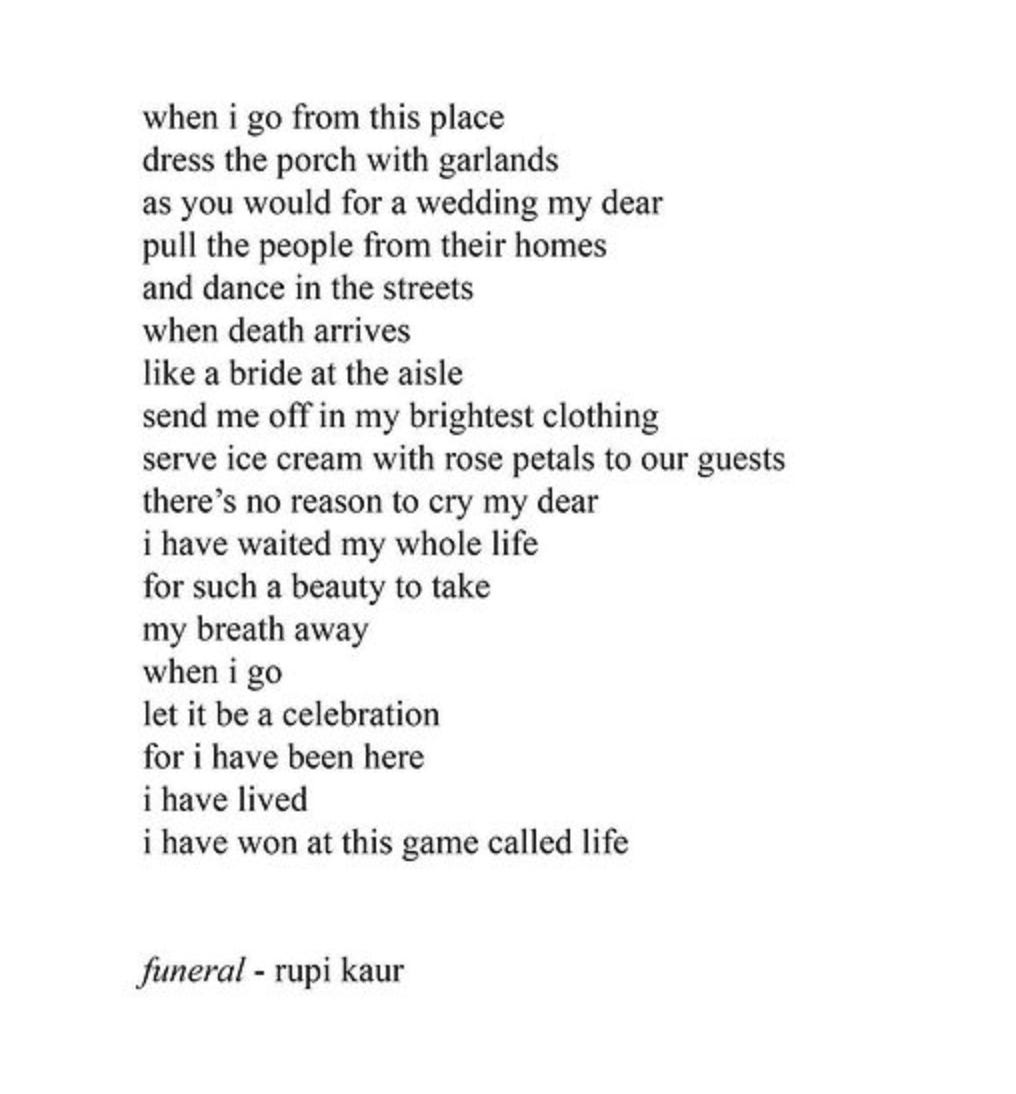Short Death Stories: Last Words #2
A cracking murder mystery inspires us to think about life and death: my own and yours.
A softer, more melancholic space—because by looking at death, I believe we experience life more vividly. Elegy and obituary, beautiful words both, language for the abyss.
This is the second of three pieces about Last Words.
Language is so vital, necessary, and powerful. The romance and storytelling of last words are immense. Inspired by brilliant crime novel The Last Word by Elly Griffiths, I got creative with last words, which led to a prompt for you to write or think about.
The last words someone else could say about you.
Benedict, one of three main characters in the novel, and wannabe writer, working in the cafe he runs, drafts his own obituary in his mind. And he finds his life story lacking: “Benedict was in a relationship with Natalka Kolisnyk, who was far too good for him.”
He plays with different possible wording for his obituary. In this earlier post, we explore writing your own obituary.
But what about writing a fantasy obituary like Benedict does? Embellishing details? Making your story richer or more fun?
Benedict makes himself live for a long time. He becomes a bestselling author, marries Natalka, has three children. He names each one. In one draft, Natalka leaves him, but he continues to write novels. He takes the essence of who he is now and writes a story about who he might be in his obituary. His story makes him sad. But inspires him, too.
What would this be like for you?
Would you change or add details if you wrote a fantasy obituary? What would you like other people to say as last words about the vivid life you’ve lived?
As I thought about this, I spent a short time in my garden. Paused, with my hands in the dirt, the smell of summer thick. The playful, urgent space between what I want my life to be and the life I have becomes harder to see: it’s a good thing to settle, not to constantly quest, and yet something about Benedict really seeing himself and his possible life plays in my mind like sunshine.
In the day-to-day grind, even getting to the garden is a back-and-forth between work calls, kids shrieking, and making supper. But that invasive, imaginative shimmer of a story lingers.
It lingers through bedtime, through the next day and the next week. And now the invitation to write or play with what’s possible is yours, too.
Your turn?
xoxo
Alice
PS: Could you share a poem with me or words that you find inspiring (see mine for you below)? And please, if you enjoyed thinking about this with me, feel free to share it with someone you think would enjoy reading it, too.
If you’re new here, my name is Alice Kuipers and I’m a writer, mother and dog-owner transplanted twenty years ago to the Canadian prairies from England. I’ve published fourteen books in 36 countries and my writing has been described as: “For storytellers and story lovers,” by Kirkus Reviews; ‘Gorgeous, heart-ripping, important,” by VOYA; and “Intense and wonderful” by Bif Naked.
Join me for Little Life Lists and Short Death Stories…
Poetry sometimes holds answers to the big questions. Tangling with these words from Rupi Kaur reminds me of when she performed in Saskatoon and lit the stage with her joy.








My favorite poem is by Mary Elizabeth Frye:
Do not stand at my grave and weep
I am not there. I do not sleep.
I am a thousand winds that blow.
I am the diamond glints on snow.
I am the sunlight on ripened grain.
I am the gentle autumn rain.
When you awaken in the morning's hush
I am the swift uplifting rush
Of quiet birds in circled flight.
I am the soft stars that shine at night.
Do not stand at my grave and cry;
I am not there. I did not die.
Gentle, stirring words... A poem I have always loved, by Christina Rossetti:
When I am dead, my dearest,
Sing no sad songs for me;
Plant thou no roses at my head,
Nor shady cypress tree:
Be the green grass above me
With showers and dewdrops wet;
And if thou wilt, remember,
And if thou wilt, forget.
I shall not see the shadows,
I shall not feel the rain;
I shall not hear the nightingale
Sing on, as if in pain:
And dreaming through the twilight
That doth not rise nor set,
Haply I may remember,
And haply may forget.